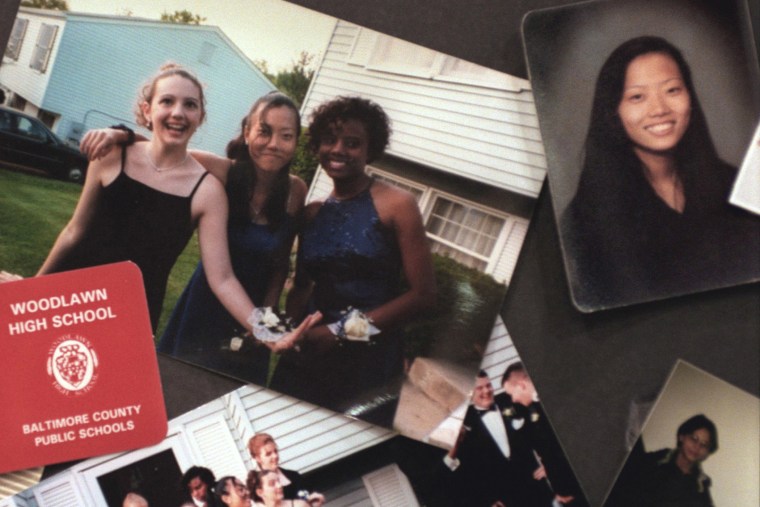Hae Min Lee was murdered 15 years ago, and as far as the justice system is concerned, her killer is behind bars for life. But on social media in 2014, the jury’s still out.
"Serial," the blockbuster nonfiction podcast produced by This American Life, has unofficially reopened the murder case against Adnan Syed. And that's left devoted listeners -- 1.5 million worldwide and counting -- unpacking the details and swapping theories on whether Syed is guilty or not.
The podcast, which explores the real 1999 murder case in weekly episodes, tells the story of high school student Hae Min Lee, then 18, whose body was discovered in a park in Baltimore County, Maryland, apparently strangled. Syed, Lee’s Pakistani-American ex-boyfriend, was arrested six weeks after the girl's murder, and prosecutors argued he killed her out of jealousy after the couple broke up and Lee started a new relationship. Syed was convicted of first-degree murder, robbery, and false imprisonment in 2000, and is serving life in prison in a Western Maryland state prison.
The verdict will come under renewed scrutiny in January, when a Maryland appeals court is set to re-hear one aspect of the case; Syed, now 34, has argued his innocence for years, arguing lawyer Christina Gutierrez fumbled his defense when she didn’t look into a letter from an alibi witness who claimed to see him in a library at the time of the murder. Syed's current attorney, C. Justin Brown, told the Associated Press it's his client's "last best chance" at freedom.
"Serial" doesn't claim the case against Syed was wrongly decided, but it has raised legitimate questions about whether he -- or someone else -- committed the murder. And while the trial ended with a guilty verdict, executive producer and host Sarah Koenig insists she doesn't know how the podcast will conclude since the show is recorded in real time, and she is continuing to interview Syed. But without a sudden and unexpected twist, listeners may not get the "big reveal" they are craving.
The concern on social media, along with questions on the ending raised by The New York Times and The Guardian, have forced Koenig to defend the podcast’s intentions.
“I said it’s not my responsibility to make a perfect ending. I do want a solid ending that is based in my reporting. But I don’t feel a responsibility to make it the kind of entertainment that you would get on some TV drama. No way. That would be crazy,” Koenig told the Times in an interview ahead of the final episodes.
Still, Koenig, a former Baltimore Sun reporter, and her team continue to try to figure out the piece of the puzzle that’s stumped lawyers: What exactly happened in the 21 unaccounted for minutes when Lee was killed between 2:15 and 2:36 p.m. One of the key suspects was Adnan's "friend" Jay, but he later paved the way to Adnan’s conviction, testifying that he helped to bury Lee after Adnan killed her. His story changed throughout the investigation.
There are wild conspiracy theories. A subreddit has become extremely popular, filled with topics like “Now that we have discussed 374 theories, some more out than than others…” and “Why I think I want Adnan to be innocent.”
Remember the last time the Internet attempted to solve a murder on Reddit?
Jay has so far refused to do an on-the-record interview with Koenig for “Serial”; Syed, on the other hand, has communicated with her regularly via phone from prison. It has caused the narrative to fixate on the real possibility of his innocence -- making a case persuasive enough that an Innocence Project team has even researched the case. This has largely driven a belief among listeners that the “real killer” is still out there, and the audience is going to figure out who it is.
"An emotional see-saw. First I think Adnan is innocent, now I'm sure he's guilty. But what about Don? Pretty soon I'll be positive Sarah Koenig did it. So confusing!!" One commenter wrote on the show's Facebook page after a recent episode.
Another chimed in on the same thread: “This story is chasing its own tail … If nothing else its proof that you can put anything under the microscope and get a million different possibilities to mull over.”
In a recent BuzzFeed poll asking “Do you think Adnan Syed is guilty?” more than half of the respondents didn’t have a clear answer. 55% chose the “Maybe” option; 23% clicked on “I haven’t decided yet.”
The uncertainty of “maybe he did, but also, maybe he didn’t” is not only becoming aggravating, it’s arguably invasive. Someone claiming to be Hae Min Lee’s brother, shocked by the attention of the podcast, took to Reddit to blast the media for spinning the murder into entertainment and shed light on the question of reaching an endpoint.
“Being a media person that she is, she wants some big ending,” the user wrote of Koenig.
In real life, the appeals court hearing may bring a new resolution to the case, but it won't wait for “Next time, on 'Serial'"-- the podcast will by then be long gone.
